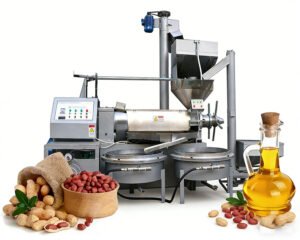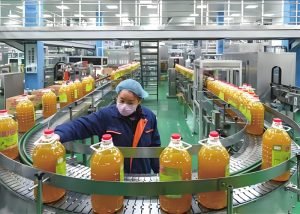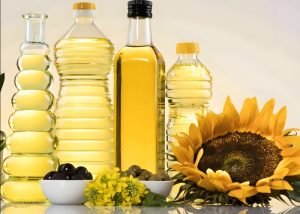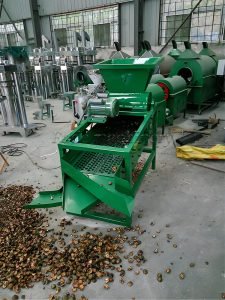Cold Pressed vs. Hot Pressed Oil: What’s the Key Difference?
I often talk about oil processing. You might wonder about the basic differences between cold pressed oil and hot pressed oil. This is an important question for anyone involved in oil production, from small farm owners to large refinery operations. I will explain the core differences in extraction methods, how they affect the final product, and what this means for your business. Understanding these distinctions helps you make informed choices about your oil processing equipment needs. I see many clients confused by these terms. This guide will clarify everything for you.
Last Updated: May 2025 | Estimated Reading Time: 10 minutes
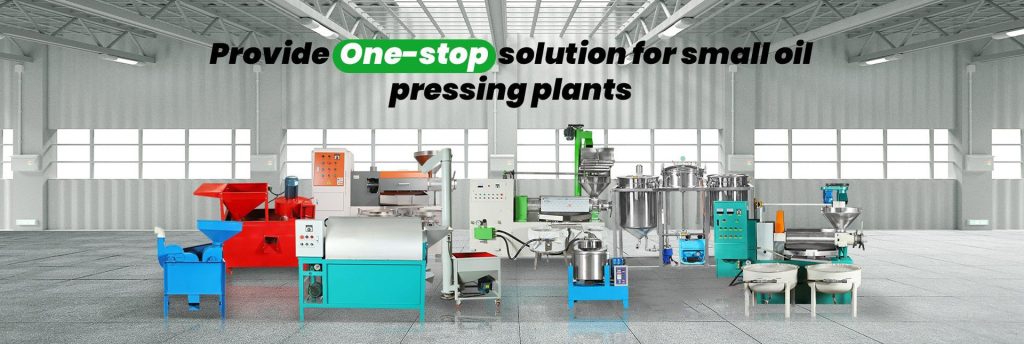
Table of Contents
- What is Cold Pressing, and How Does it Work?
- What is Hot Pressing, and How Does it Work?
- What are the Key Differences for Your Business?
- 2025 Latest Trends in Oil Pressing Technology
- Common Questions About Oil Pressing
- Summary and My Recommendations
What is Cold Pressing, and How Does it Work?
Cold pressing extracts oil from seeds or nuts. It uses mechanical pressure. The process uses very low heat. Temperatures typically stay below 120 degrees Fahrenheit (about 49 degrees Celsius) .
Cold Press Oil Press This low temperature is crucial. It helps keep the natural flavor of the oil. It also preserves the nutrient content . This method prevents oil oxidation and degradation. No external heat or chemicals are part of this extraction. People often see cold-pressed oils as healthier and more natural . For example, when you extract oil from olives this way, the process protects antioxidants like vitamin E and polyphenols .
These substances can easily break down at higher temperatures . My team and I understand that you want to produce the best quality oil. Cold pressing offers a way to do this. It keeps the oil as close to its natural state as possible. This makes it a great choice for premium food oils. You get a rich, natural flavor . The oil has high nutrient content. This includes vitamins, antioxidants, and essential fatty acids . This oil works best for low-heat cooking, like sautéing or drizzling . However, it has a shorter shelf life. This is because of its high unsaturated fat content . It is also more likely to oxidize without heat treatment .
Why Does Cold Pressing Retain More Nutrients?
Cold pressing retains more nutrients because it avoids high temperatures. High heat can change the chemical structure of oil . It can destroy important substances. These include vitamin E, sterols, and carotenoids . When you use a cold press, these beneficial compounds remain in the oil . The process extracts oil at room temperature. This is around 27 degrees Celsius . This low temperature means the oil’s acidity stays low . The oil needs no further refinement . This means you get a purer product. It also keeps its original taste and natural properties . For your business, this means you can market a superior product. It offers greater health benefits to your customers. Many consumers look for these qualities. This process is ideal for specialty oils. Think about oils used in salads or as finishing oils. They offer a distinct taste and aroma. This appeals to a specific market segment. My team designs equipment for this specific purpose. We help you achieve the best possible quality.
| Cold Pressing Benefits for Your Business | Description | Your Practical Meaning |
|---|---|---|
| Nutrient Content | High | Essential for health-focused products |
| Flavor Profile | Rich, Natural | Premium products, distinct taste |
| Processing Temperature | Low (<120°F) | Minimizes degradation, preserves quality |
Practical Tips for Your Business:
- For premium oils: Use cold pressing to produce high-value oils like virgin olive oil or specialty nut oils.
- For maximum nutrients: Choose cold pressing if your target market prioritizes health benefits and nutritional value.
- For fresh flavor: Your oil will have a stronger, fresher taste. Market this as a key selling point.
What is Hot Pressing, and How Does it Work?
Hot pressing is another way to extract oil. This method uses heat. The seeds or nuts are usually roasted before pressing . This heat helps to release more oil from the raw material .
Screw Oil Press It significantly improves the oil yield . High temperature and pressure change the oil’s taste and nutritional content . Hot-pressed oil is common in commercial applications. This is because of its higher yield . It also has lower production costs compared to cold-pressed oil . For your large-scale operations, this method can be very efficient. It allows you to produce more oil from the same amount of raw material. This directly affects your profitability. The heat helps to make the extraction process faster . It makes it more efficient .
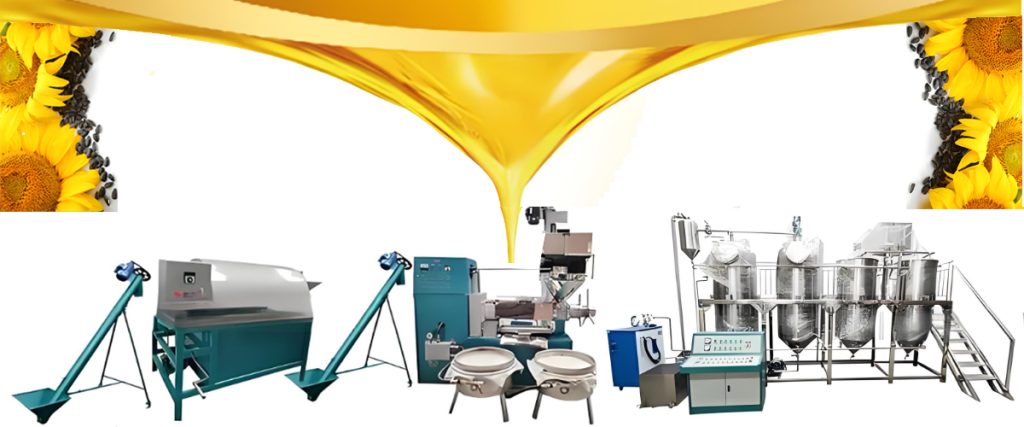
How Does Heat Affect Oil Composition and Yield?
Heat affects oil composition and yield in several ways. The high temperatures can reduce some natural flavor compounds . This makes hot-pressed oil have a milder flavor . It also lowers the nutrient content . Important substances like Vitamin E, sterols, and carotenoids can be lost . However, the heat also breaks down cell walls. This releases more oil . This significantly increases the yield .
Hot-pressed oil yields average 37% of the total oil content . Cold-pressed oils average about 35% . This difference in yield is important for commercial producers. A higher yield means you process more oil per batch. This lowers your per-unit production cost. Hot-pressed oil also tends to have a higher smoke point . This makes it suitable for high-heat cooking. Think about frying and baking . It also has a longer shelf life . The heat helps destroy bacteria and microorganisms . This prevents spoilage . Your operation can benefit from this consistency and cost-effectiveness.
| Hot Pressing Benefits for Your Business | Description | Your Practical Meaning |
|---|---|---|
| Oil Yield | High | Cost efficiency, more product per input |
| Smoke Point | High | Versatile for various cooking applications |
| Production Cost | Lower | Suitable for large-scale, mass production |
Practical Tips for Your Business:
- For high volume: Use hot pressing if your main goal is to maximize oil output and reduce costs per liter.
- For versatile use: Hot-pressed oil is good for general cooking, frying, and baking due to its higher smoke point.
- For consistent quality: The heat processing can lead to a more uniform product across batches.
What are the Key Differences for Your Business?
Understanding the distinctions between cold and hot pressing is vital for your operational strategy. Both methods produce oil. But they target different market needs. They involve different cost structures. Cold pressing values quality over quantity. Hot pressing prioritizes quantity and cost efficiency. For your business, this means choosing the right method affects your product, your market, and your profit.
I have helped many clients navigate this decision. You must consider your specific raw materials. You also need to think about your target market. Do your customers want a premium, nutrient-rich product? Or do they need an affordable, versatile oil for general use? This choice dictates the oil extraction equipment you should invest in. My company designs machines for both approaches. We help you find the perfect fit.
Key Differences for You:
- Production Process: Cold pressing uses mechanical pressure with low heat . Hot pressing uses heat before or during pressing .
- Nutrient Content: Cold-pressed oil keeps more natural nutrients . Hot-pressed oil loses some nutrients due to heat .
- Flavor and Aroma: Cold-pressed oil has a strong, natural flavor . Hot-pressed oil is milder .
- Yield: Hot-pressed oil gives more oil from the same amount of material . Cold-pressed oil has a lower yield .
- Cost: Cold-pressed oil is more expensive to produce . Hot-pressed oil is generally cheaper .
- Shelf Life: Cold-pressed oil has a shorter shelf life . Hot-pressed oil lasts longer .
- Availability: Hot-pressed oil is more widely available . Cold-pressed oil is less common .
Market Insights for Your Business:
The market for edible oils is diverse. Some consumers prioritize health benefits. They are willing to pay more for cold-pressed oils. Other markets focus on affordability and versatility. For these, hot-pressed oils are often the go-to. For example, in developing countries, there is a large demand for cost-effective oil extraction methods . This often leans towards hot pressing. However, premium segments globally seek out cold-pressed options. You should research your local market. Understand what your potential customers truly value. This will guide your production strategy. My experience tells me that successful businesses align their production method with their market demand.
2025 Latest Trends in Oil Pressing Technology
The oil pressing industry continues to evolve. New technologies aim for better efficiency and product quality. Automation is a major trend. It helps reduce labor costs. It also increases throughput for both cold and hot pressing. For example, advanced pre-treatment equipment is becoming more common. This equipment prepares raw materials better. It ensures optimal extraction.
My company focuses on these innovations. We integrate them into our oil mill plant designs. This helps you stay competitive. You need to produce high-quality oil efficiently. The future involves smarter machines. They offer more precise control over temperature and pressure. This optimizes yield for hot pressing. It preserves more nutrients for cold pressing.
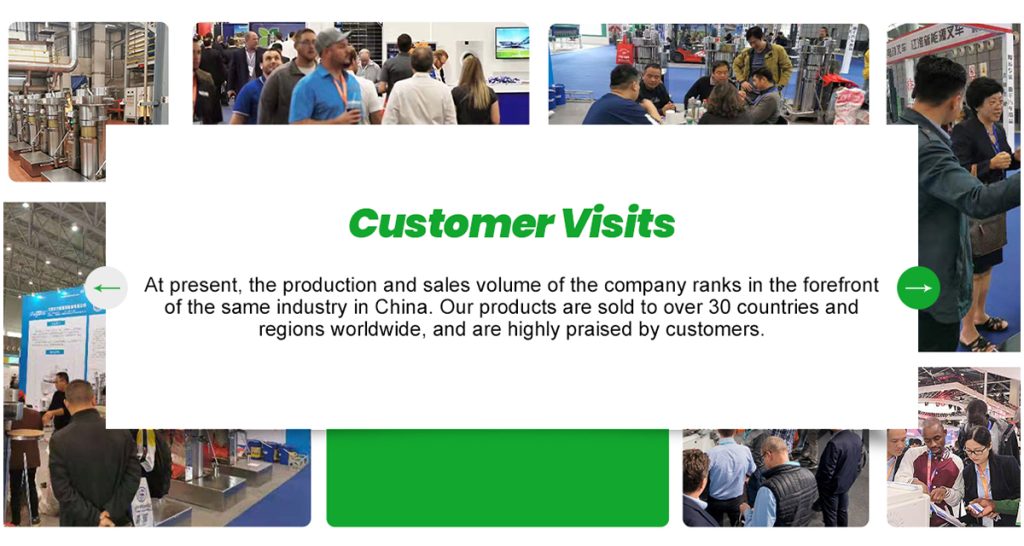
Latest Advances for Your Business:
- Advanced Pre-treatment Equipment: This includes better cleaning and dehulling machines. They prepare your raw materials for more efficient pressing.
- Automated Pressing Lines: These systems reduce manual labor. They increase production speed. This lowers your operational costs.
- Tailored Refinement Technologies: For hot-pressed oils, advanced refinery equipment removes impurities more effectively. It minimizes nutrient loss. For cold-pressed oils, minimal filtration preserves natural compounds.
Market Insight for Your Business:
Consumers today want more transparency. They want to know how their food is made. This drives demand for both unrefined, natural oils and highly purified, consistent oils. Your business can cater to both. Automated systems allow for better batch consistency.
This builds customer trust. Sustainable practices are also becoming more important. Energy-efficient pressing equipment is gaining traction. You should look for partners who offer customized oil processing solutions. This ensures your setup meets specific needs. It also positions you for future growth. I see more companies asking for eco-friendly solutions. This is a clear indicator of market direction.
Common Questions About Oil Pressing
Question 1: Why is cold pressed oil more expensive?
Cold pressed oil is more expensive for a few reasons. The yield is lower compared to hot pressing . This means you need more raw material to make the same amount of oil. The process is slower. It needs more specialized equipment maintenance . There are also higher labor costs . Consumers often see it as a premium product. This also adds to its higher price .
Question 2: Can hot pressed oil be healthy?
Yes, hot pressed oil can be part of a healthy diet. It has a higher smoke point. This makes it good for high-heat cooking like frying and baking . While it loses some nutrients due to heat , it is still a food product. It provides energy and fats. The key is how you use it and what other foods are in your diet.
Question 3: What kind of oil processing equipment do I need?
The equipment you need depends on your goals. Do you want to produce small batches of premium, nutrient-rich oil? Then a cold press might be best. Do you need high volume and cost efficiency for a general-purpose oil? Hot press equipment would be ideal. My team can help you assess your needs. We can recommend the right machinery for you.
Summary and My Recommendations
I have shown you the fundamental differences between cold pressed oil and hot pressed oil. Cold pressing uses low heat. It preserves nutrients and flavor but has a lower yield and higher cost . Hot pressing uses heat. It increases yield and lowers costs but might reduce nutrient content and alter flavor . Both methods have their place in the market. Your choice depends on your specific business goals.
I recommend you think about your target market. Consider your production volume needs. Also, think about your budget. If you aim for premium products, cold pressing is your path. If you need efficient, high-volume production, hot pressing is better. Fude Machinery offers a full range of oil extraction equipment. We provide custom solutions for all types of operations. I can help you find the best equipment. This will meet your unique business requirements.
Related recommendations
-
How to Make the Spiral Hydraulic Press the Ideal Choice for Processing Plants?
128Struggling to find an oil press for both farm and industrial use? Our heavy-duty screw oil press, with robust build, high capacity, versatility, and reliability, offers scalable solutions for all. Continuous oil extraction demands machinery...
View details -
Comparing Chemical and Physical Oil Refining?
688Crude oil holds many impurities. You need clean, pure oil. Refining gives you safe, high-quality oil. Chemical refining uses alkali to remove free fatty acids. Physical refining uses high temperature steam distillation. Choosing one depends on ...
View details -
How Can You Prevent Sediment and Blockages in Oil Pressing?
486Oil pressing sediment and blockages halt your production. They reduce your output. They also waste your time and money. We understand these frustrations in edible oil production. This article gives you clear steps. You will learn how to avoi...
View details -
What season is suitable for using the tea seed peeling machine
497The tea seed sheller is suitable for use during the season when tea seeds are ripe and have undergone appropriate pretreatment, mainly concentrated in autumn and other time periods after tea seed harvest
View details
 Oil Press Equipment and Oil Refining Machinery for Sale – Start Your Oil Press Business
Oil Press Equipment and Oil Refining Machinery for Sale – Start Your Oil Press Business
